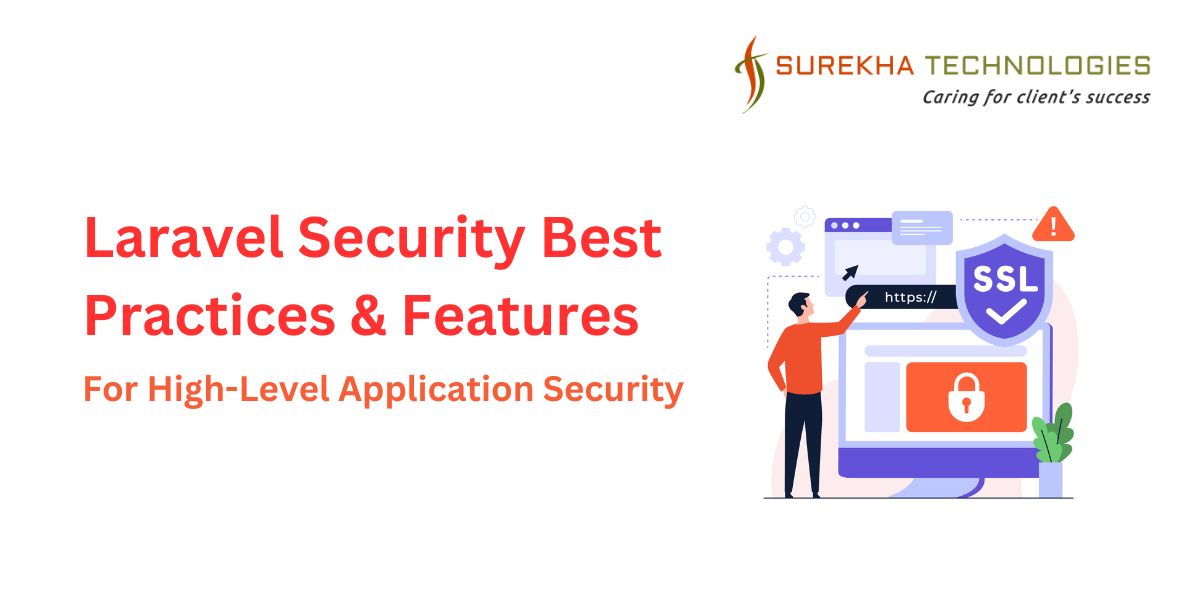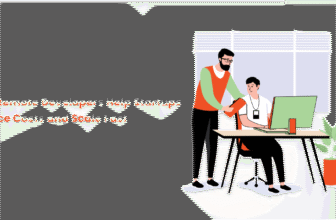
In today’s digital era, where cyber threats continue to evolve, securing web applications has become more critical than ever. Laravel, one of the most popular PHP frameworks, is well-known for its elegant syntax and developer-friendly features. However, its true strength lies in its robust security capabilities. Whether you’re building a simple website or a complex enterprise platform, Laravel provides a range of built-in security features that can help ensure your application is protected.
This article explores the core Laravel security features and best practices that developers and businesses should leverage when investing in Laravel web application development services.
Key Security Features in Laravel
Laravel offers a comprehensive suite of security tools out-of-the-box. Here are some of the most critical features:
1. CSRF Protection
Cross-Site Request Forgery (CSRF) attacks are a common threat where unauthorized commands are transmitted from a user that the web application trusts. Laravel automatically generates a CSRF token for each active user session. This token is verified on every request, protecting your application from CSRF attacks.
2. Encryption
Laravel uses the OpenSSL encryption library to encrypt data. Developers can use the Crypt facade or encrypt() and decrypt() helpers to store sensitive information safely in the database or pass it between sessions.
3. Hashing Passwords
Passwords in Laravel are never stored in plain text. The framework uses the powerful bcrypt hashing algorithm by default through Laravel’s Hash facade. With the rise of brute-force attacks, this ensures user credentials remain protected even in the case of data leaks.
4. SQL Injection Protection
SQL injections can compromise a database’s integrity and security. Laravel protects against this by using Eloquent ORM and query builder, which automatically use parameter binding to sanitize inputs.
5. Secure Authentication System
Laravel’s built-in authentication system is secure and customizable. Features like password reset, remember me, and login throttling ensure both user experience and security are maintained. Laravel Breeze, Jetstream, and Fortify also provide robust scaffolding for authentication.
6. Secure File Uploads
When handling file uploads, Laravel ensures files are validated before being stored. Developers can restrict file types, size, and even sanitize filenames to prevent malicious file executions or path traversal attacks.
Laravel Security Best Practices
Beyond the built-in features, developers using Laravel web application development services should follow these best practices to further enhance security:
1. Always Keep Laravel Updated
Laravel frequently releases security patches and updates. Keeping your framework up to date ensures you’re protected from the latest known vulnerabilities.
2. Use HTTPS
Always deploy Laravel applications using HTTPS. Secure Sockets Layer (SSL) encrypts data between the browser and server, protecting it from eavesdropping or tampering.
3. Validate and Sanitize User Input
Never trust user input. Always use Laravel’s built-in validation methods to sanitize and validate data before storing or using it in queries.
4. Implement Role-Based Access Control (RBAC)
With Laravel’s gates and policies, you can define who can perform what actions. This ensures only authorized users have access to specific areas or data.
5. Use Environment Variables for Sensitive Information
Avoid hard-coding sensitive credentials in your codebase. Use Laravel’s .env file to store information like API keys, database credentials, and encryption keys.
6. Enable Logging and Monitoring
Leverage Laravel’s logging system to track unusual behavior or failed login attempts. Integrate external monitoring tools to alert you of any anomalies.
Conclusion
Laravel is not only a developer-friendly framework but also a security-conscious one. With a solid set of built-in features and a range of best practices, you can create secure, scalable applications.
If you’re looking to develop a high-performing, secure web solution, partnering with a professional provider of Laravel web application development services can make all the difference. They can help implement these security features and practices effectively, giving you peace of mind and a competitive edge in today’s digital landscape.







